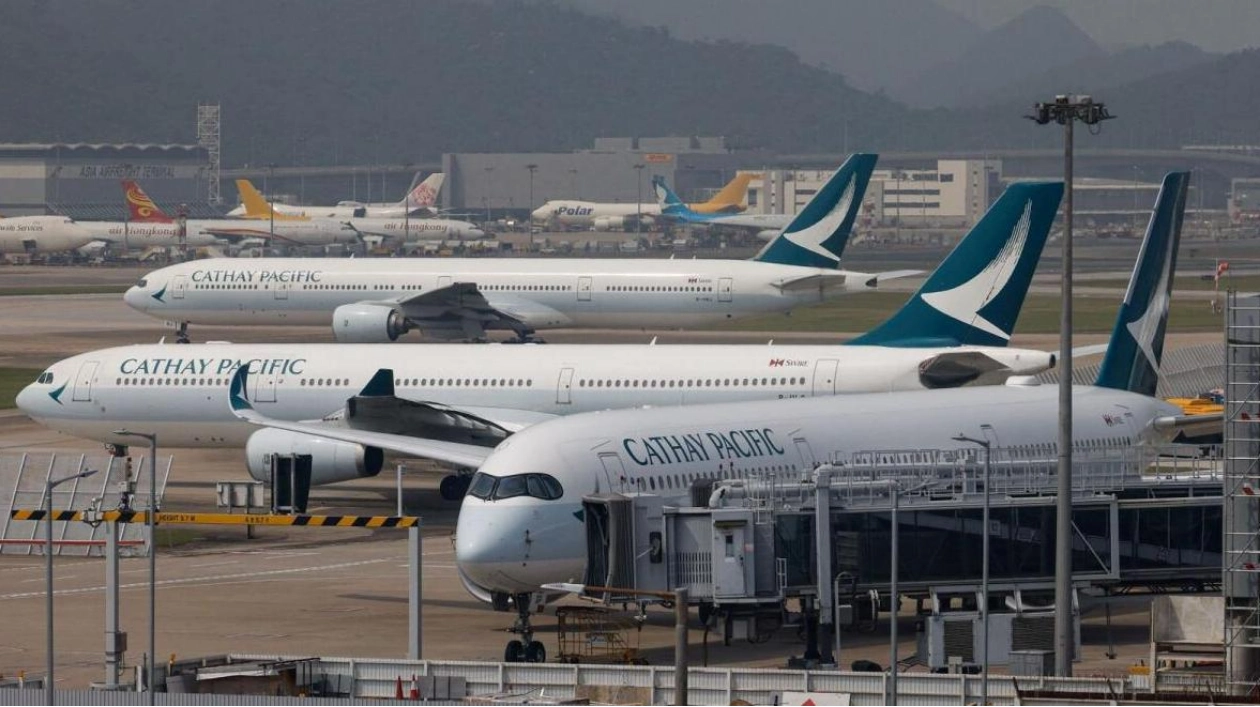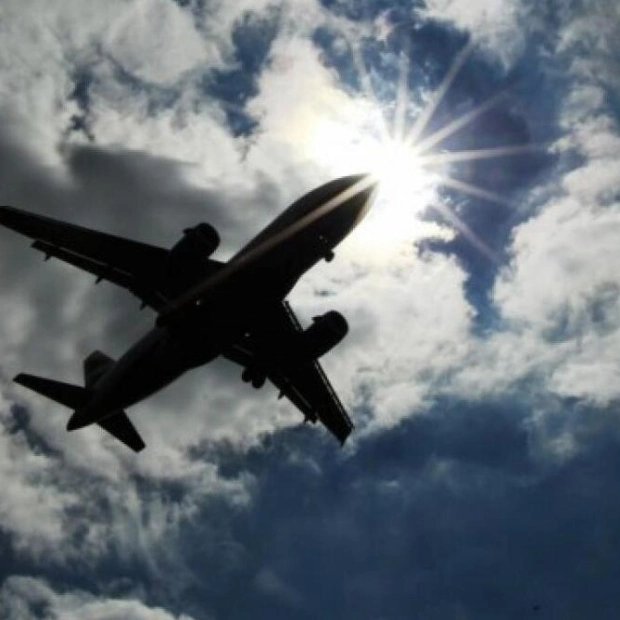Hong Kong's Cathay Pacific Airways announced on Tuesday that it had conducted a thorough inspection of its entire Airbus A350 fleet following the in-flight failure of an engine part, discovering that 15 aircraft required component replacements. The airline revealed that out of the 48 Rolls-Royce-powered planes inspected, three had already undergone successful repairs, with all expected to return to service by Saturday. As a result of this disruption, Cathay Pacific had to cancel at least 34 round-trip flights. Other airlines reported that they had not received directives to inspect similar engines, despite a part failure occurring on one of Cathay Pacific's A350-1000 widebody planes shortly after take-off from Hong Kong on Monday.
FlightRadar24 data indicated that other major operators of the A350-1000 and the more common A350-900 were continuing to fly their aircraft normally on Tuesday. Japan Airlines (JAL), which operates five A350-1000s, all under a year old, stated it had requested additional information from Rolls-Royce and had not halted A350 flights. A JAL spokesperson noted, 'If the engine manufacturer takes any further action, we will respond accordingly.' Rolls-Royce had not issued any directives to airlines concerning potential inspections, according to an industry source not authorized to speak publicly on the matter.
Cathay Pacific confirmed it had secured necessary spare parts for the engine components requiring replacement. Rolls-Royce also mentioned that replacements could occur with the engine still attached to the aircraft. The engine manufacturer expressed its commitment to collaborating closely with Cathay Pacific, Airbus, and the investigating authorities. Although Cathay Pacific did not specify which engine component failed, it noted this was the first instance of such a failure on any A350 aircraft globally. A source familiar with the matter informed Reuters that the issue involved a fuel nozzle problem within a XWB-97 engine, the model used on the A350-1000.
Experts consider such issues rare, but generally less alarming than failures of major rotating parts like turbine blades, unless a deeper flaw is identified. Widespread additional inspections could potentially disrupt airline operations. Airbus stated it was in contact with Rolls-Royce and Cathay Pacific, offering full technical support. Taiwan's China Airlines, operating 15 A350-900s without the affected engines, confirmed its operations would not be impacted and would continue to follow original manufacturer instructions to ensure aircraft safety.
Despite the part failure occurring on one of its 18 A350-1000 jets, Cathay Pacific also inspected its 30 A350-900s as a precautionary measure, identifying several engine components that needed replacement, though it did not specify on which model aircraft. There are approximately 88 A350-1000 jets in operation worldwide, with the top operators including Qatar Airways, British Airways, Virgin Atlantic, and Etihad Airways. These airlines did not immediately respond to requests for comment. Cathay Pacific's shares fell by up to 0.9% on Tuesday, with the cancelled flights affecting routes between Hong Kong and several major cities. Rolls-Royce shares closed 6.5% lower on Monday.






